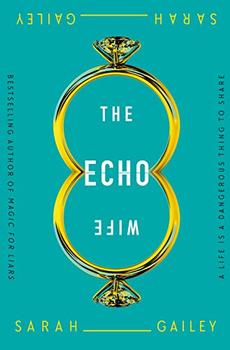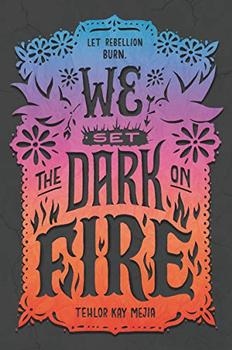Summary | Excerpt | Reading Guide | Reviews | Beyond the book | Read-Alikes | Genres & Themes | Author Bio

After leaving their home behind and finding jobs in the city, Josephine and her husband Joseph are hoping they're finally making a new life for themselves. But everything about Josephine's job is sterile, strange and mind-numbingly boring. Stuck all day in a depressing and windowless room, she enters data into a computer, until the day she recognizes a name on a list of people killed in an accident, and then things start to get peculiar.
On the surface, The Beautiful Bureaucrat seems like a very simple story about two ordinary people struggling to live their lives. The book begins during Josephine's job interview, and it is clear that the year is 2013. However, Phillips quickly adds elements to the story that make us wonder if this might be some parallel 2013 universe. For example, the person interviewing Josephine has no name, and is so bland and faceless that it is impossible to tell the person's gender. The only distinctive thing about him/her is a case of extremely bad breath. Josephine and Joseph's past is also enigmatic, as they've left what they call "the hinterland" to find work in a nameless city. Add this to the string of dismal apartments rented from strangers, no friends, and working at a tedious job in a windowless room in a huge anonymous looking building, and you have a portrait of a very grim – possibly apocalyptic – world indeed.
This novel defies classification into a single genre. Certainly dystopian fits, except those are typically set in a futuristic time. It also has elements of science fiction, with Josephine working with unending piles of classified and unintelligible data for an anonymous company. There's also an element of fantasy when Josephine starts to understand the significance of the information she's entering into the computers. "Kafkaesque" is equally appropriate – how Josephine uses this knowledge, combined with her fears when Joseph doesn't come home, as well as vignettes of the peculiar people Josephine meets and sees, all add an element of odd mystery to the book. The reviewer for The Huffington Post saw shades of the late-19th century short story, "The Yellow Wallpaper" by Charlotte Perkins Gilman (see Beyond the Book). Whatever genre it is, the one word that I feel describes it best is creepy.
What I find so sinister is the conceit Phillips imbues in the novel's overarching question: What if the thing that really controls our lives is a bunch of bureaucrats inputting data into computers? And, more important: Do we have any power over what happens to us? Or are we being manipulated? I don't believe that Phillips is implying a spiritual or supernatural control, but rather something unnaturally inhuman, if not mechanical. This reminded me of the Charlie Chaplin film "Modern Times," and in particular, the scene where he is caught inside the machine. Phillips investigates these questions while making the narrative shockingly stark and colorless to match Josephine's world, exacerbated by her failing eyesight from the tedious computer work. Somewhat in contrast to this are Josephine and Joseph, with their deep affection for each other, and their attempts to bring some brightness into their lives through little things, like making funny phrases by anagramming words, or buying unusual foods and eating them in less than ordinary places. These passages kept the book from being overly heavy and disheartening, and I truly appreciated their inclusion.
Overall, my impression is that Phillips wants us to begin reading The Beautiful Bureaucrat with a glimmer of hope, but she then moves us through various levels of quiet desperation with splashes of optimism, all as the action becomes increasingly unsettling. To do this, Phillips builds the stress and increases the pace of the narrative throughout this short novel, until it reaches a perfectly formed climax at the end. This makes for a very exciting, page-turning read, with a surprisingly inscrutable conclusion, which I'm still pondering.
![]() This review was originally published in The BookBrowse Review in September 2015, and has been updated for the
May 2016 edition.
Click here to go to this issue.
This review was originally published in The BookBrowse Review in September 2015, and has been updated for the
May 2016 edition.
Click here to go to this issue.

If you liked The Beautiful Bureaucrat, try these:

by Sarah Gailey
Published 2022
I'm embarrassed, still, by how long it took me to notice. Everything was right there in the open, right there in front of me, but it still took me so long to see the person I had married.

by Tehlor Mejia
Published 2020
In this daring and romantic fantasy debut by Latinx authors Zoraida Córdova and Anna-Marie McLemore, society wife-in-training Dani has a great awakening after being recruited by rebel spies and falling for her biggest rival.
Your guide toexceptional books
BookBrowse seeks out and recommends the best in contemporary fiction and nonfiction—books that not only engage and entertain but also deepen our understanding of ourselves and the world around us.